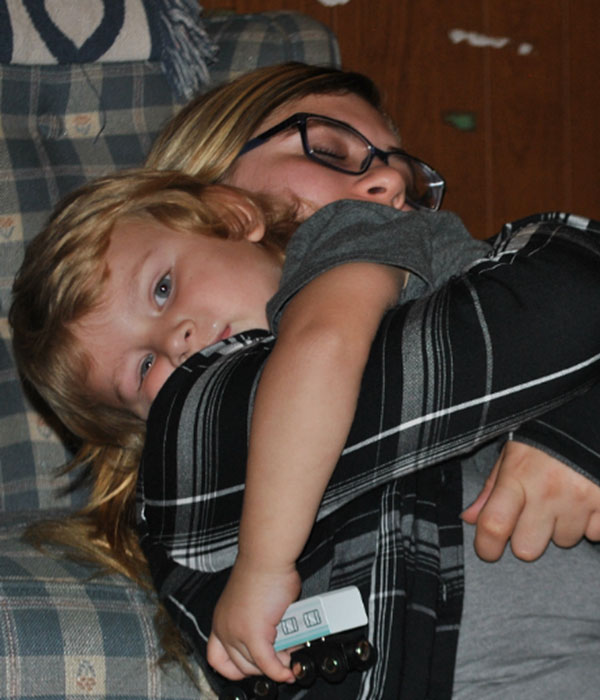 Your agency should establish protocols for coping with various kinds of crises. As part of the home visitor's orientation training, you should have the opportunity to learn relevant policies and procedures and practice the skills involved in managing a crisis. The home visitor should know who the agency's community partners are and how and when to contact them. You should also have emergency phone numbers for the management team at your agency.
Your agency should establish protocols for coping with various kinds of crises. As part of the home visitor's orientation training, you should have the opportunity to learn relevant policies and procedures and practice the skills involved in managing a crisis. The home visitor should know who the agency's community partners are and how and when to contact them. You should also have emergency phone numbers for the management team at your agency.
A crisis is a time of intense difficulty, trouble, or danger that may cause family tensions and imbalance to rise. It may require a very quick intervention for the safety of the family. Family members may become overwhelmed, immobilized, frightened, and unpredictable. However, they may also be open to new approaches to solving problems. With the right tools, a crisis may provide an opportunity for both you and the family to make significant, positive changes. While home visitors are frequently called on for support in their interactions with families, you are not operating alone and should work with the management team when helping families manage a crisis.
Crisis intervention is guided by six major goals that influence decisions about Head Start program's role with a family in crisis and their aim to stabilize and strengthen the family:
- Identify and understand the crisis-triggering events.
- Relieve the acute symptoms of stress being experienced by the whole family and individual family members; this step may best be taken by police or other community agencies.
- Restore the family and family members to their best pre-crisis levels of functioning or better.
- Identify steps the family, Head Start staff, and community resource providers can take to remedy the crisis.
- Establish a connection between the family's current situation and past experiences.
- Support the family's use of new ways of coping with stressful situations, which can include referrals for mental health consultation.
How To
You support a family in crisis by:
- Recognizing the signs of high-risk behaviors (e.g., substance abuse, domestic violence) and observing and verifying potentially dangerous situations (e.g., guns in the house, violent outbursts)
- Identifying potential stressors, such as a loss of a job or unexpected expenses, violence in the neighborhood, or sudden natural disasters (e.g., floods, hurricanes, earthquakes, fire, and tornadoes)
- Having partnerships with local agencies and nonprofit and faith-based organizations that provide crisis intervention
- Ensuring these agencies will provide culturally appropriate services, such as homeless, women's, and domestic violence shelters, food banks, and health clinics
- Establishing protocols and training in your program for how to respond to different kinds of crises
- Keeping the family safe while recognizing that your first responsibility is to keep yourself safe
- Having culturally relevant response plans and services in place
- Using a strengths-based approach as you help the family figure out what they want and how they might achieve it
- Maintaining your professional boundaries and supporting the family within the protocols and practices defined by your agency
- Having information and resources available to assist staff and families after a crisis
- It may be useful for family members or staff to speak with a mental health consultant after a crisis or read information about common reactions to crisis
Learn More
Assessing Family Crisis
A crisis is a period of heightened family tension and imbalance that requires quick staff identification. Head Start staff who work with families will find this information useful in understanding what brings about crises for families. Just as a crisis is an opportunity for a family, it is also an opportunity for staff to make a real difference in the life of a Head Start family.
Strategies for Talking with Children About Difficult Issues
Discover strategies for talking with children about difficult issues, including birth, death, divorce, loss, illness, domestic violence, substance abuse, and more.
ACF-IM-HS-14-06 Helping Children and Families Experiencing Domestic/Intimate Partner Violence
This Information Memorandum provides Head Start programs and Child Care and Development Fund grantees with updated information about the effects of intimate partner violence on families with very young children and how early childhood education programs, state and local child care agencies, and related systems can help.
Read more:
Resource Type: Article
National Centers: Early Childhood Development, Teaching and Learning
Last Updated: February 18, 2025
